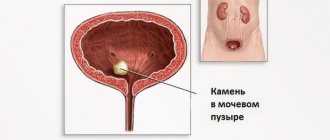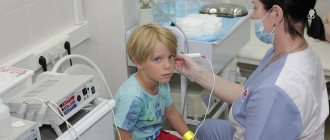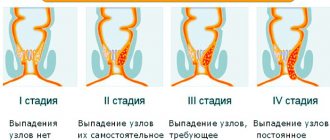Who is guilty?
When spouses do not have children for a long time, as a rule, they think first of all about the woman. But statistics say that problems with reproductive function are common among the stronger sex.
Thus, in 45% of couples who come for examinations, the cause of infertility on the part of the man is determined, which is why it is important for both partners to undergo fertility diagnostics.
Where to go?
How do I know if I can have children? With this question, couples come to clinics for examination, expecting maximum help from specialists. Indeed, family planning centers specialize in solving problems with infertility, diagnosing and treating diseases of the reproductive system, preparing a woman for conception, conducting the IVF procedure, and also managing pregnancy.
These medical institutions are equipped with all the necessary equipment to identify pathologies that impede the fertilization of the egg and gestation. The work of family planning centers is impossible without highly qualified reproductive doctors and others. Success in the treatment of infertility depends on the coordinated work of geneticists, obstetricians-gynecologists, endocrinologists and embryologists. In addition, when preparing spouses for conception, the necessary psychotherapeutic correction is carried out.
When a married couple realizes that there is a problem with conception, specialists carry out all the necessary tests. "Can I have children?" The answer to this question will be known after deciphering the survey results.
Sexual infections and intimate problems
Family planning should always begin with a comprehensive examination of the body of the expectant mother and her sexual partner. And all because on the way to fertilization there may be numerous obstacles in the form of the same infections or undiagnosed STDs. For example, chlamydia damages the fallopian tubes and causes inflammatory processes in the pelvic organs.
Pain during sex is also a reason to contact an antenatal clinic with the question “can I get pregnant,” since it is a signal of hidden inflammation and infections.
Causes of infertility
Among women, the most common medical factors causing inability to conceive are:
- problems with ovulation (in 36% of cases);
- obstruction of the fallopian tubes (30%);
- endometriosis 18%;
- hormonal imbalances;
- infectious diseases, sexually transmitted diseases, etc.
A man’s ability to reproduce does not depend on his sexual activity, but on the quality and quantity of sperm. Infertility is caused by the following factors:
- decreased motility and vital activity of sperm;
- a rapid decline in their numbers;
- disruptions in their movement along the vas deferens and release to the outside.
If you ask a specialist the question: “How do I know if I can have children?”, then the man will first prescribe a spermogram test.
How do I know if I can have children?
Every woman dreams of having a child. But not everyone is destined to give birth to a baby. According to statistics, 15% of Russian couples are infertile. Therefore, many ladies, having gotten married, wonder whether they are able to conceive and bear a baby. How to determine whether you have a chance for happy motherhood?
Most women can get pregnant and give birth – about 88%. So don’t torment yourself with unreasonable fears. Moreover, you can only understand for sure whether you are capable of motherhood through experience, that is, by trying to conceive a baby. However, several factors may suggest infertility. Therefore, everyone who wants to become mothers should listen carefully to their body.
You may be interested in: Echinacea tincture
You can successfully become pregnant only if there are no serious problems with the menstrual cycle. Normal is usually between 21 and 35 days and indicates proper ovulation.
But if there have been no menstruation for more than six months or your cycle is irregular, your periods are too painful, heavy or scanty, this may indicate a disorder, for example, endometriosis, which significantly reduces the chance of conceiving a child. Consult your doctor to diagnose the problem and take timely measures to prevent pregnancy.
Hormonal imbalance in the body can also prevent timely conception. It usually manifests itself as persistent acne, oily skin and excess hair. All this may mean that a woman has polycystic ovary syndrome. In other words, the body produces too many androgens (male sex hormones). This problem can also be corrected. You just need to not delay it, get diagnosed and treated on time.
An alarm signal is if fluid is released from the nipples. This may be a manifestation of hyperprolactinemia. With this hormonal disorder, infertility is possible.
Some women find it difficult to conceive if they are overweight or underweight. All this can cause ovulation problems.
Sexually transmitted diseases can lead to infertility. It's not just AIDS, gonorrhea or syphilis. For example, chlamydia is very common, causing damage to the fallopian tubes and pelvic inflammatory disease. Therefore, it is very important to diagnose all diseases and quickly treat them.
Possible infertility can also be indicated by problems during sexual intercourse: painful sensations or vaginal dryness. They can be caused by infections, pathologies, and abnormal structure of the genital organs. Therefore, if you want to get pregnant, you must be examined by a doctor.
And yet, the presence of one or more of the symptoms listed above does not put an end to your possible motherhood. Only a small part of diseases is incurable. And even in extreme cases, there are methods that allow a woman to conceive a child one way or another.
Source
Premature menopause or ovarian wasting syndrome
Based on an examination, an infertile couple may hear a diagnosis of “depletion of the follicular reserve” in the spouse. This pathology is rare, occurring in only 1.6% of the population.
The disease is typical for women aged 36-38 years, and even earlier. The clinical picture of follicular reserve depletion syndrome is the cessation of ovarian function, that is, the onset of premature menopause, accompanied by cessation of the menstrual cycle, hot flashes, irritability and headaches.
- genetic predisposition on the female side;
- surgical interventions on the ovaries;
- dysfunction in the pelvic organs.
The disease is detected through hormone tests, ultrasound, laparoscopic biopsy and other medical studies. When a woman asks if I can get pregnant if I have ovarian wasting syndrome, the reproductologist’s answer will be in the affirmative. But this is impossible in a natural way, only with the help of IVF and donor oocytes.
Endometrial examination
The uterine mucosa is diagnosed by two methods. The first is ultrasound screening, which allows you to evaluate the endometrium and its condition. The second is hysteroscopy. This is the insertion of a small camera into the uterine cavity, as well as the collection of a section of the mucous membrane for a biopsy.
Endometriosis provokes disruptions in the processes of ovulation and egg maturation; adhesions can form in the genitals, which, accordingly, reduces the chances of conception.
“How do I know if I can have children if I have been diagnosed with endometriosis?” - women ask. We answer: pathology does not indicate 100% infertility. After treatment of the disease, many women manage to successfully become pregnant.
Attention! Error detected
No publications were found on the site at this address, or you do not have access to view information at this address.
What can be done?
- Use the search
- Go to the main page.
You may also be interested
News
OGE officially postponed due to coronavirus
Due to the tense epidemiological situation, the dates for the Unified State Examination and the Unified State Examination will be postponed, as reported by the Ministry...
News
Lev Leshchenko was transferred to intensive care
The director of the artist Lev Leshchenko yesterday denied rumors about the coronavirus in his ward. Information appeared in the media that...
News
Lev Leshchenko will be tested for coronavirus
People's Artist of Russia Lev Leshchenko was transferred to the intensive care unit of the hospital on Kommunarka, where patients with coronavirus are being monitored...
News
Leshchenko's wife clarified his health condition
A few days ago, Lev Leshchenko was hospitalized in the intensive care unit of a hospital in Kommunarka with pneumonia. Later doctors...
News
Hantavirus may be more dangerous than coronavirus
While the COVID-19 pandemic is raging in the world, a death from hantavirus has been recorded in China. They have already begun to call it “new Chinese...
News
The dates for rescheduling the Unified State Examination and the Unified State Examination have become known
The Ministry of Education of the Russian Federation announced the postponement of the unified state exam and the main state...
News
The drug "Favipiravir" will begin to be produced in Russia
The Russian Direct Investment Fund (RDIF) will create a joint venture with the group to produce…
News
Oleg Gazmanov worries about his health
The famous Russian singer Oleg Gazmanov hastened to go into quarantine due to Leshchenko being diagnosed with coronavirus. The decision to stay home...
News
Lev Leshchenko's health has changed for the better
Pop singer Lev Leshchenko felt better amid rumors of pulmonary edema. According to the head of the Russian Ministry of Health, Mikhail Murashko,...
News
The daughter of cancer patient Zavorotnyuk made a new statement
Fans are praying for the cancer-stricken actress of Russian films and TV series Anastasia Zavorotnyuk, whose condition has not been reported for a long time...
Tubal patency
The study is prescribed when the tests are normal, doctors give a favorable prognosis, but the woman still cannot get pregnant for a long time. Another reason for the appointment is a history of ectopic pregnancies. Based on the patient’s health status, the doctor prescribes one of the methods for diagnosing fallopian tube obstruction:
- diagnostic laparoscopy;
- hysterosalpingography (x-ray);
- hydrosonography;
- fertiloscopy;
- perturbation.
Ideally, the fallopian tubes should not be visible during an ultrasound examination. To find out their structure and permeability, the tubes are filled with a contrast liquid or saline solution heated to body temperature. The procedure is absolutely painless. Laparoscopy is performed under general anesthesia. Perturbation is the blowing of carbon dioxide through pipes under pressure.
Which doctor should I contact for help?
As mentioned earlier, only a doctor can make an accurate diagnosis. If you suspect a disease, you should consult a urologist or andrologist. These doctors specialize in men's health and will help you make an accurate diagnosis. Most likely, the patient will need help from other doctors, for example, an endocrinologist.
In order to make an accurate diagnosis, a man will need to go through several diagnostic stages.
To begin with, the doctor conducts an initial survey of the patient. The characteristics of sexual life, previous operations and illnesses (their presence or absence) are taken into account. The doctor also recognizes possible negative factors that may affect the development of the disease (for example, living or working conditions).
After the interview, the doctor conducts a thorough examination and prescribes the necessary tests. In some cases, a man is sent for additional consultation to other specialists (geneticist, therapist, endocrinologist).
Blood hormone studies
To the question: “How do I know if I can have children?” — the woman will undergo a blood test for anti-Mullerian hormone, which allows you to assess the functional reserve of the ovaries. AMH is a substance that affects reproductive abilities. Any disturbances in the formation of the hormone complicate the onset and development of pregnancy. The examination is prescribed when:
- problems with fertilization;
- an unsuccessful attempt at IVF, that is, the body did not respond to stimulation;
- infertility of unknown origin.
The higher the AMH, the higher the fertility rate, the greater the chance of successful IVF. Low levels of the hormone indicate the onset of menopause, obesity, and ovarian dysfunction.
Exceeding the AMH norm indicates an ovarian tumor, pilicistosis, anovulatory infertility, etc.
Blood sampling for analysis is carried out on the third day of the cycle. Preparing for the test involves eliminating physical activity and stress three days before blood sampling. An hour before the test, you should stop smoking and eating. The analysis is deciphered by a reproductologist.
Together with AMH, tests for inhibin B and follicle-stimulating hormone (FSH) can also be used to assess the ovarian reserve, that is, the ability of the ovaries to respond to stimulation.
A woman’s reproductive function is directly affected by the functioning of the thyroid gland, so when planning pregnancy it is important to get tested for TSH, free T4 and antibodies to thyroid peroxidase (AT-TPO).
Spermogram: stages of examination
The reliability of the result depends on how correctly the biomaterial was submitted. It is important to follow certain rules.
Preparation. A man is recommended to abstain from sexual activity for several days (no more than 7, no less than 2). During this period, it is necessary to exclude fatty and fried foods from the diet, not to drink alcohol or any medications, refuse to visit the bathhouse and try to avoid hypothermia. To the point that you can’t turn on the heated seats in cars on the way to the laboratory. Before taking the test, you must thoroughly wash your penis with soap and empty your bladder.
Collection of ejaculate. Biomaterial must be obtained only through masturbation. This happens in a separate office in the clinic or at home, but then the container with sperm must be brought within an hour. It is prohibited to use for analysis biomaterial obtained by oral or interrupted sexual intercourse using lubricants or a condom, as they contain substances that affect the speed of sperm.
Detection of sexually transmitted infections
“Nothing hurts or worries” is not yet a reason to refuse research. Most infections are asymptomatic and chronic. These diseases are usually discovered by chance, when determining the causes of infertility, and in the process of planning conception. Sexually transmitted infections (STIs) include:
- bacterial (chlamydia, ureaplasmosis, gonorrhea, mycoplasmosis, syphilis);
- viral (hepatitis, herpes, HIV, molluscum contagiosum and human papillomavirus);
- parasitic (lice pubis).
Diagnosis of STIs is carried out by:
- PCR;
- bacteriological culture;
- biochemical blood test;
- serological method.
Signs of male infertility
How to find out if a man can have children? All symptoms can be divided into two large groups of signs. The first is external manifestations, the second is subjective internal sensations that allow one to suspect a malfunction in the body. The symptoms of male infertility in the vast majority of clinical pictures go unnoticed for a long period of time. As a rule, until all attempts to get pregnant end in the desired result.
It’s worth knowing: sex hormones and organs of the reproductive system are responsible for male fertility.
When a hormonal imbalance develops due to a disease, external symptoms often appear. Some diseases of the reproductive system that lead to impaired fertility are also visually distinguishable. However, the presence of an external clinic does not always indicate infertility.
The diagnosis is made solely based on the results of laboratory and instrumental diagnostics.
How can I determine if I can have children? It is recommended to pay attention to external signs of infertility:
- A physique atypical for a man. If a representative of the stronger sex has an anatomical tendency towards a female-type figure, this is a reason to suspect fertility problems. Symptoms are most pronounced in men due to Klinefelter syndrome, a congenital disease. During puberty, there is an accumulation of fatty tissue at the waist, insufficient amount of hair on the body, high stature in combination with narrow shoulders, enlarged mammary glands, small and dense testicles.
- The stronger sex, having a “beer belly” or obesity, runs the risk of being infertile. An excess of fatty components in the body leads to the development of azoospermia - a pathological condition due to which there are no sperm in the seminal fluid. Pathology is diagnosed in 25% of men among all cases of morbidity.
- The answer to the question of how to find out that you are infertile is to carefully examine your scrotum. Normally, both testicles are the same size. One may be located slightly lower than the other - a variant of the norm. If the scrotum enlarges on one or both sides, an atypical structure is present, the shade of the skin changes - signs of infertility.
- The undescended state of one testicle or both testicles indicates impaired fertility, since full spermatogenesis cannot occur in the abdominal cavity. Most often, this pathology is diagnosed in infancy.
- Asymmetrical appearance of the scrotum. The formation of a hernia leads to an increase in the size of the scrotum. In everyday life, pathology rarely bothers representatives of the stronger sex, since it does not tend to manifest itself as pain. But the danger is that the growth of the tumor provokes compression of the blood vessels that nourish the soft tissue of the testicles, and accordingly, spermatogenesis is disrupted. Asymmetry of the scrotum can be caused by varicocele disease - dilation of the veins of the spermatic cord.
- How can you tell if a man is infertile? A violation can be suspected if there is an insufficient amount of seminal fluid after ejaculation. A small amount of semen for a mature man after 55 years of age is normal, but not for a young man aged 20-35 years.
- Hyperemia or swelling of the scrotum. These signs indicate an inflammatory process. In the absence of timely treatment, the reproductive function of men is disrupted. Typically, additional symptoms are present. This is an increase in body temperature, pain in the perineum, general malaise, and enlarged lymph nodes.
How and where can you find out about the state of your women's health?
The most logical thing would be to choose a good gynecologist who will conduct a comprehensive examination of your body, and the reproductive system in particular. You can contact either a public or private specialist, which completely depends on your financial situation and moral beliefs.
Unconventional ways to find out whether a woman can have children in the future are as follows:
- You can master the basics of palmistry and read from your hand the whole truth about whether you are capable of having one or more children. “Baby lines” are located under the little finger, and if they are deep and clearly visible, then the baby will be born healthy and will live happily all his life. An intermittent and unclear line means the child will be born, but will be sickly and die early, if not even during gestation. This same method may be the answer to how to find out whether your man can have children from you or at all. But, since male representatives do not have the ability to give birth, the lines on the hands only show how many heirs he will be tied to by blood ties. This means that you can find out how many children he will have in life, from you, or from other women. Again, palmistry makes it possible to know the potential number of children, while modern people can regulate them through contraception and medication;
- You can also try telling fortunes on your wedding ring. It is suspended by a thread and held above an open palm. When the decoration starts to swing, you need to track its trajectory. For example, if it draws circles, then a girl will be born, a boy will sway from side to side, if it will stand still, there is no point in dreaming about an heir.
Description of methods for determining infertility
How to determine infertility in a man? To do this, you need to undergo diagnostics. The examination algorithm includes collecting the patient’s medical history and complaints. The doctor examines existing chronic pathologies and a history of surgical interventions. Be sure to ask about the number of sexual partners, whether they are pregnant or not, and their method of contraception. Information about work is also important, since occupations involving chemicals can impair fertility.
Important: at your first visit to the doctor, a visual examination is performed. The doctor assesses the degree of development of secondary sexual characteristics, palpates the testicles of the scrotum, the dilation and tortuosity of the veins of the spermatic cord. A rectal examination of the glandular organ is performed to confirm or refute the presence of inflammatory processes.
An important step in diagnosis is the assessment of reproductive and sexual function. The doctor specifies the number of sexual intercourses per week, the hardness of the penis during an erect state, the nature of ejaculation - early, normal or delayed. Then it is recommended to take a spermogram. To do this, the man submits his seminal fluid to the laboratory. Today, spermogram appears to be the most informative diagnostic method. Sperm testing helps determine the following abnormalities:
- Low number of active sperm;
- Lack of sperm in seminal fluid;
- Reduced number of viable sperm;
- Low sperm count;
- Leukocyte surge (infection or inflammation);
- A large amount of seminal fluid;
- The presence of 50% of defective sperm, for example, having a doubling of the head, changes in structure, shape, etc.
If there is a suspicion of sexually transmitted infections, additional tests are prescribed. These include a smear from the urethral canal, PCR diagnostics to determine the type of specific pathogenic microorganism. A bacterial culture of the seminal fluid is also carried out (if bacteria or a large number of leukocytes are found in the semen), and prostatic juice is examined.
How to check for infertility in men? Often disorders are associated with hormonal imbalance in the male body. Hormonal studies are carried out to determine the concentration of testosterone, FSH, LH, prolactin, estradiol. The content of free radicals is assessed - excessive production damages the sperm membrane, impairs their motility, which reduces fertilizing ability.
For information: an important stage in diagnosing male infertility is the study of the acrosomal reaction - when the sperm comes into contact with the egg, chemical transformations are observed on its head, which allow it to dissolve the shell of the egg and, accordingly, penetrate inside. The acrosomal reaction occurs exclusively in sperm with normal morphology.
Electron microscopic examination of sperm and cytogenetic analyzes make it possible to detect the pathology of sperm structure, evaluate the contents of seminal fluid plasma, and determine the qualitative and quantitative characteristics of chromosomes. When chromosomal abnormalities are detected, genetic counseling is required to understand the cause of infertility.
How to test for infertility? In addition to the tests described above, instrumental diagnostics are recommended for men:
- Ultrasound of the thyroid gland.
- X-ray of the skull, sella turcica (manipulations are necessary to exclude a tumor process in the pituitary gland).
- Ultrasound transrectally and transabdominally. The structure and consistency of the testicles, epididymis, glandular organs, the condition of the seminal vesicles, and vas deferens are assessed.
- Dopplerography of the scrotum.
- Thermography of the scrotum (determines varicose veins).
- Testicular biopsy examination. This manipulation is carried out against the background of an idiopathic decrease in active sperm with normal testicular size and FGS concentration.
If an immunological type of male infertility is suspected, a study of antisperm bodies is performed. Their presence indicates that the immune system produces specific antibodies that mistake germ cells for foreign objects. Additional tests include the Shuvarsky analysis (helps determine the immune conflict at the level of the cervical canal) and the Kurzrock-Miller test.
Several years ago, California scientists developed a test for male infertility that is performed at home. It is presented in the form of a sperm chip. It contains “bridges” of electrodes that are filled with liquid. A few drops of seed should be placed into the chip. After that, the device tracks each sperm “swimming under the bridge” and then determines their number. The price of such a new product varies from $50 to $80.
Causes of infertility
The factors that provoke the onset of infertility in men are different. In most cases, these are stress, poor lifestyle, heavy physical activity, and harmful production. Injuries, overheating, and congenital pathologies of the genitourinary system contribute to the deterioration of the condition of the germ cells. Previous infectious diseases and malfunction of the endocrine glands, manifested in the form of excessive growth of the abdomen and chest, play a role in impaired reproductive function.
The inability to conceive can be affected by testicular varicose veins-varicocele, in which swelling of the veins and increased temperature of the genital organ leads to the destruction of sperm. Infertility often occurs as a result of prostatitis—inflammation of the prostate gland, when false urges to empty the bladder become more frequent. If the prostate is inflamed, the substance in which sperm is transported at the time of ejaculation is not produced. This and other symptoms indicating possible sterility should make you think about going to the doctor.









